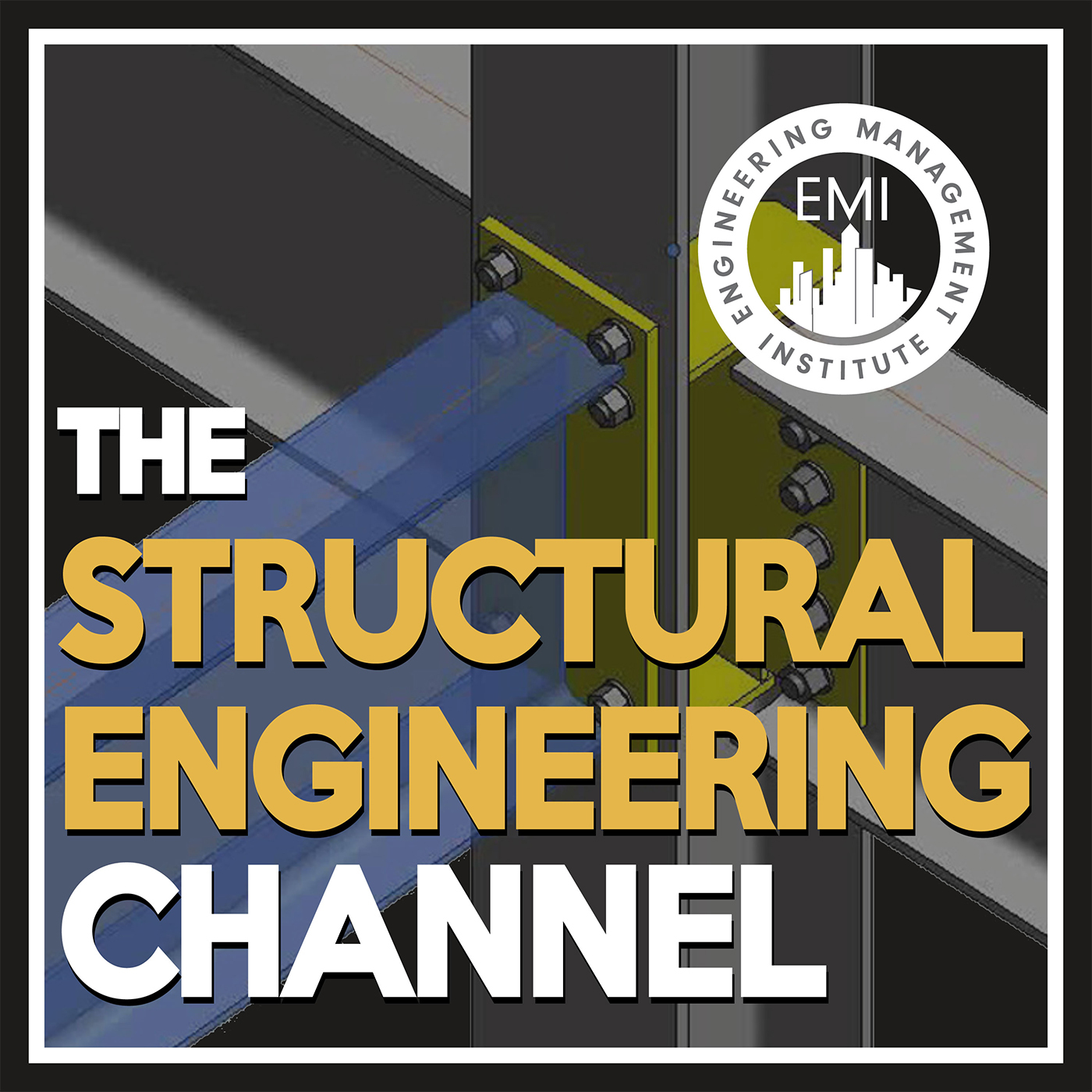TSEC 67: What Structural Engineers Should Know About the Evolving Construction Economy
Description
In this episode, we talk to Joseph (Joe) Dardis, P.E., a Senior Structural Steel Specialist with the American Institute of Steel Construction (AISC) in Chicago, about what structural engineers should know about the evolving construction economy.
Engineering Quotes:
Here Are Some of the Questions We Ask Joe About the Evolving Construction Economy:
Can you provide more insights about what the building construction economy is looking like right now, the types of projects being built, and how it has evolved?
Do you think any project types will bounce back to the level of growth they were in 2019?
How did the sizes of projects evolve over the past few years?
What forces in the overall economy drive the evolution of what we build and how can a structural engineer prepare and adapt to these changes?
What do you predict the building market will look like in the future?
How are building materials used to address the evolving building market?
What can structural engineers do to help improve the construction industry?
How do you measure US economic health and how does this relate to the construction economy?
Are there any resources available that can help engineers understand more about the evolving building market?
Here Are Some of the Key Points Discussed About the Evolving Construction Economy:
Two parts need considering when looking at the building construction market. The residential market is currently very strong. It has shown substantial yearly growth since the recession. The non-residential market has taken a knock due to the pandemic. The square footage has dropped by around 15%. It has begun to bounce back but is still not on the level it was before the pandemic. Office projects have become fewer, education projects are steady, and healthcare projects have declined over the past few years but will increase soon. The pandemic has caused a 50% drop in hotel and motel construction projects. Warehouse construction projects have surged and account for approximately 43% of the non-residential market.
The number of office construction projects should bounce back, but it is too soon to say if they will go back to their 2019 level of growth. Many companies are considering staying on the office/home working policy, which can impact office growth. Certain professions working from home it will not work for, especially when there is a lot of on-the-job training that is needed. Data centers have become very popular lately so there will always be a need for office space, but the growth could fluctuate. There aren’t any types of construction projects showing that they will come surging back soon.
In 1995, the average size of non-residential projects was around 18000 square feet, and in 2010 the average project size was around 31000 square feet. In 2021 the average project size is 54000 square feet. Warehouses have a big role in the size increase over the years. There are far fewer projects now, but the square footage of the projects is a lot higher.
Online buying has skyrocketed since the pandemic hit, which significantly increased the demand for warehousing projects. Manufacturers are experiencing how the supply chain has been affected by the pandemic. It is making them buy a surplus of materials and store them, which is also contributing to the growth in warehouse construction. A higher-level structural engineer can have the ability to plan if they look at these kinds of trends in the market. You can discern if your main projects will still be coming in, or if you should be looking at transitioning to other kinds of projects with higher demand. Plan for the future of your business by looking at what is driving the project trends. Younger engineers can look at what skills they should develop to get more and better opportunities in their careers.
More Episodes
In this episode, we talk with Ishwarya Srikanth, Ph.D., P.E., A.M.ASCE, structural engineer at EXP, about innovative advancements in bridge monitoring systems, the integration of machine learning in asset management, and the unique challenges faced in offshore structural engineering.
***The...
Published 04/18/24
Published 04/18/24
In this episode, we talk with Gbadebo Atewologun, S.E., P.E., about the importance of finding fulfillment in the profession and the satisfaction of seeing one's designs come to life. Gbadebo also discusses the impact of computers on the field, highlighting the increased speed and complexity of...
Published 04/04/24


